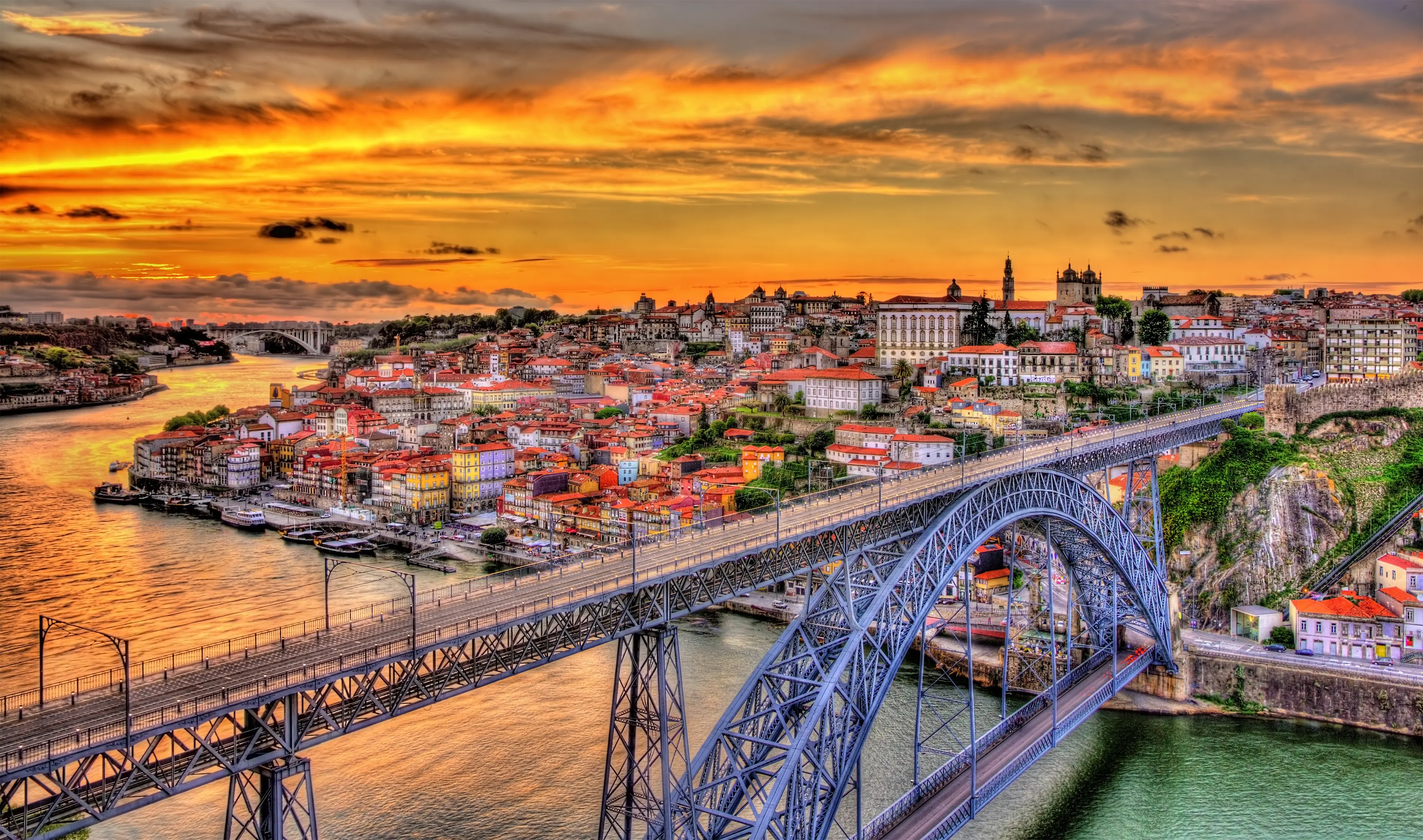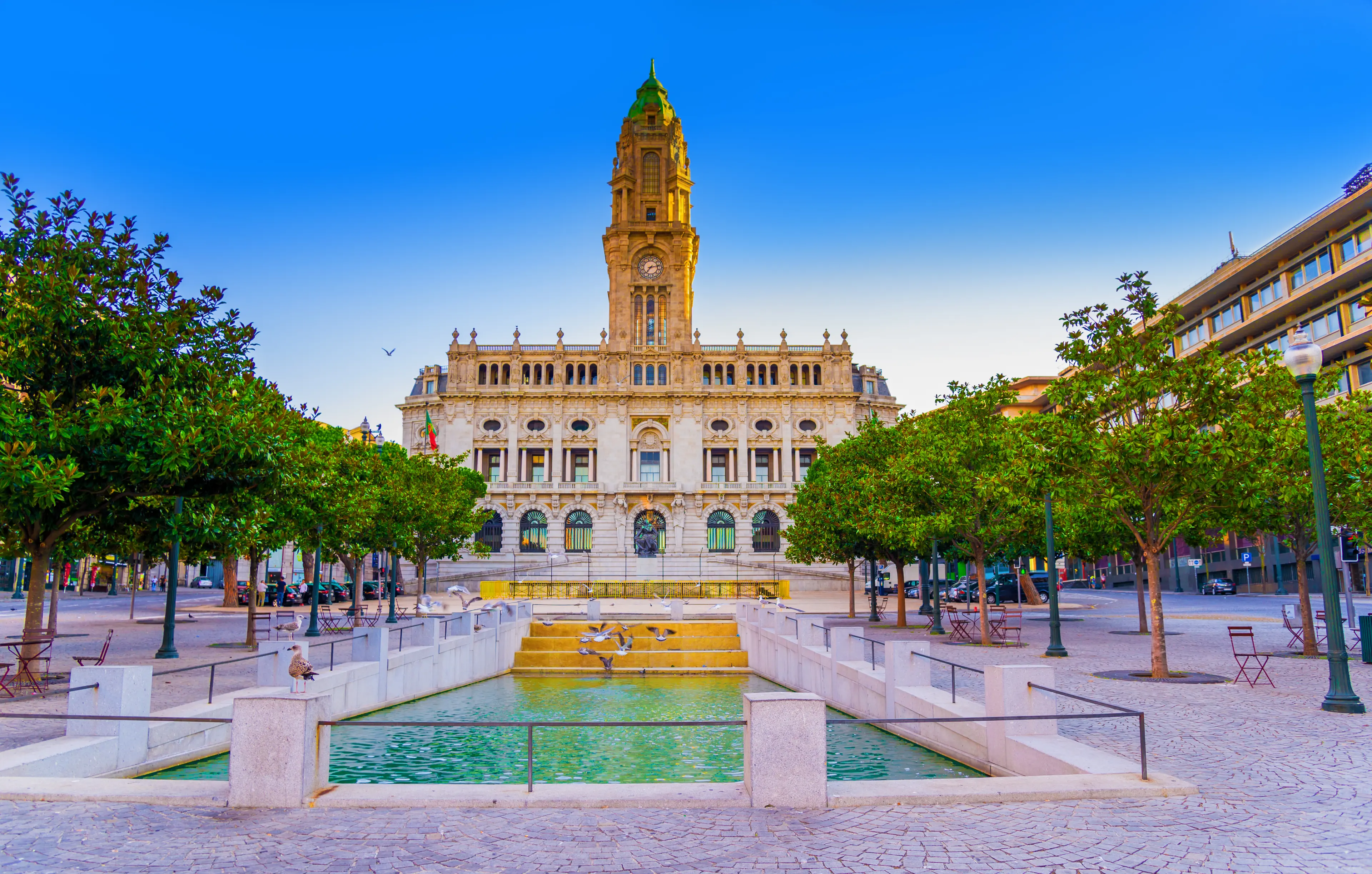2-Day Porto Adventure & Nightlife Frenzy for Friends
Porto, Portugal
2 days
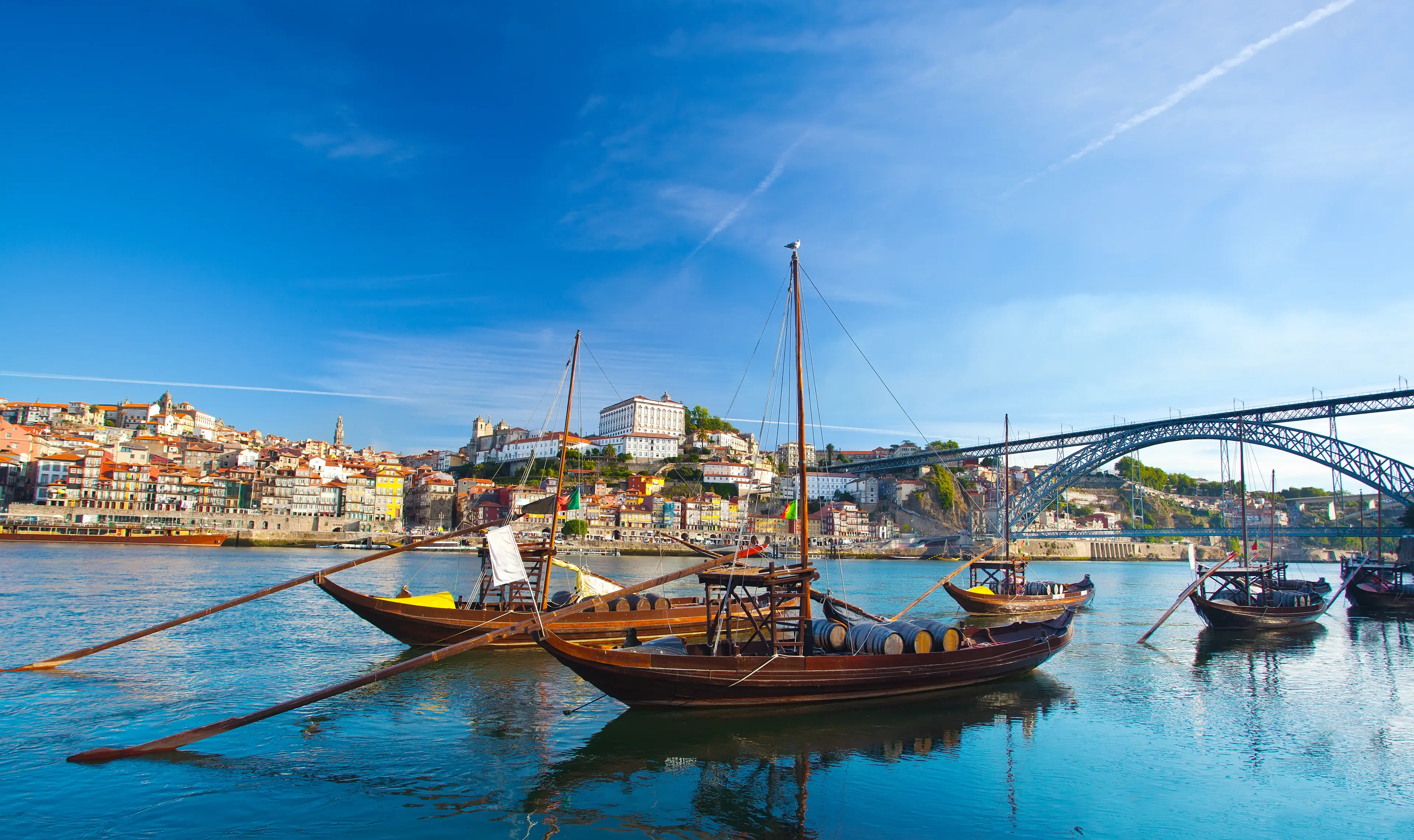

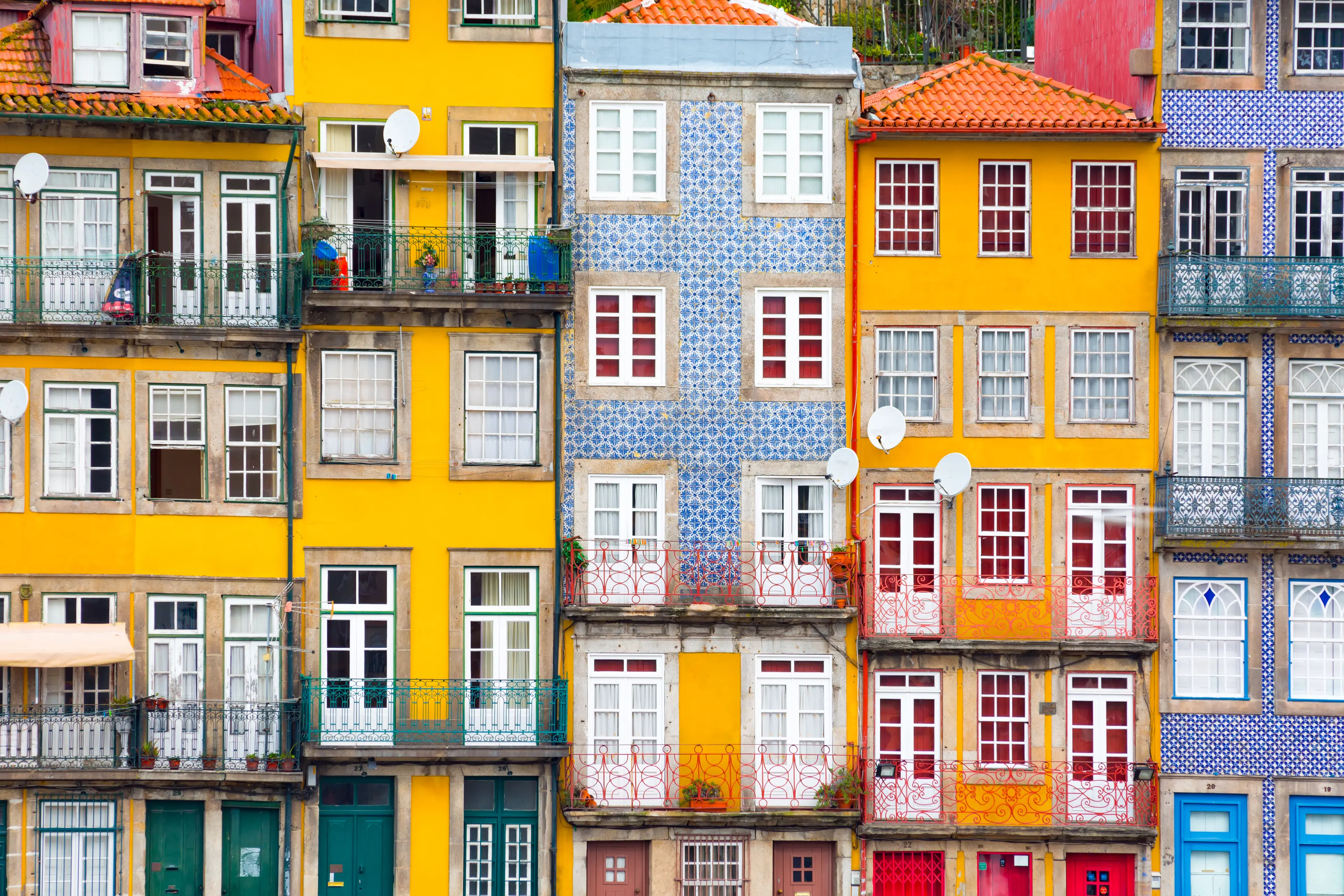
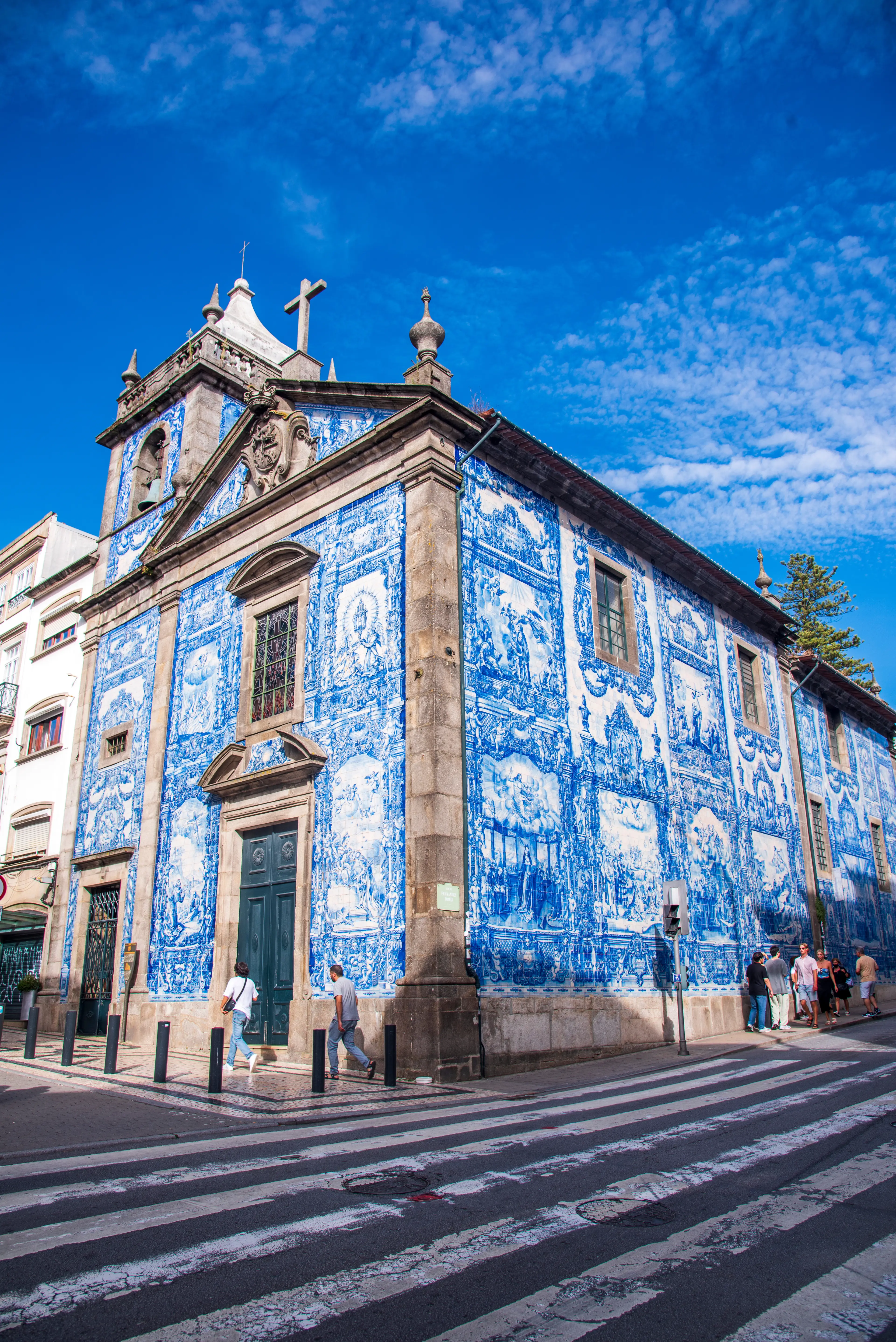
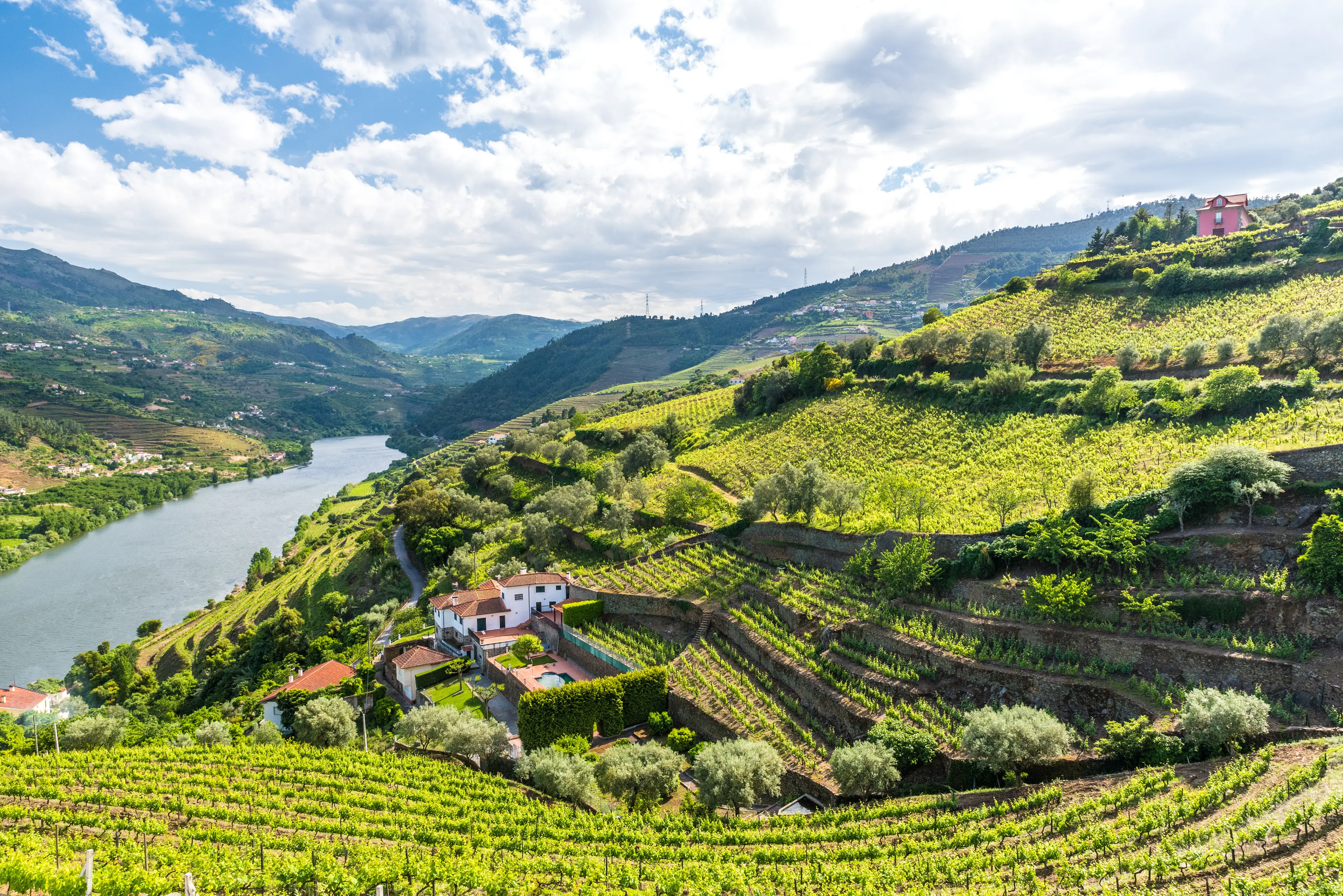
About Porto, Portugal
Experience the charm of Porto, Portugal, a UNESCO World Heritage city known for its rich history, stunning architecture, and world-famous Port wine. Wander through the narrow, cobbled streets of Ribeira, Porto's old town, and marvel at the colorful houses and ancient churches. Visit the iconic Livraria Lello, one of the world's most beautiful bookstores, and the stunning São Bento Railway Station, adorned with 20,000 azulejo tiles. Take a cruise along the Douro River, lined with terraced vineyards, or explore the city's vibrant food scene at the Bolhão Market. Don't miss a taste of the city's namesake Port wine at one of the many cellars in Vila Nova de Gaia. Porto offers a perfect blend of tradition and modernity, making it an unforgettable destination for all travelers.
2-Day Itinerary
Day 2
Visiting the Serralves Museum and Foz do Douro
Morning
Start your second day with a visit to the Serralves Museum and Gardens. Explore the contemporary art exhibitions and stroll through the beautiful gardens.
Lunch
Have lunch in a local restaurant near the Serralves Museum. Try some traditional Portuguese dishes like Bacalhau a Bras or Piri Piri Chicken.
Afternoon
Spend the afternoon exploring the Foz do Douro neighborhood, where the river meets the Atlantic Ocean. Take a walk along the promenade, visit the local shops and enjoy the stunning views.
Dinner
Have dinner in a local restaurant in the Foz do Douro area. Enjoy a meal with a view, as many restaurants here offer stunning views of the ocean.
Evening
End your trip with a visit to a local bar or club in the Foz do Douro area. Enjoy the nightlife and celebrate your last night in Porto.
Attractions in Itinerary (4)
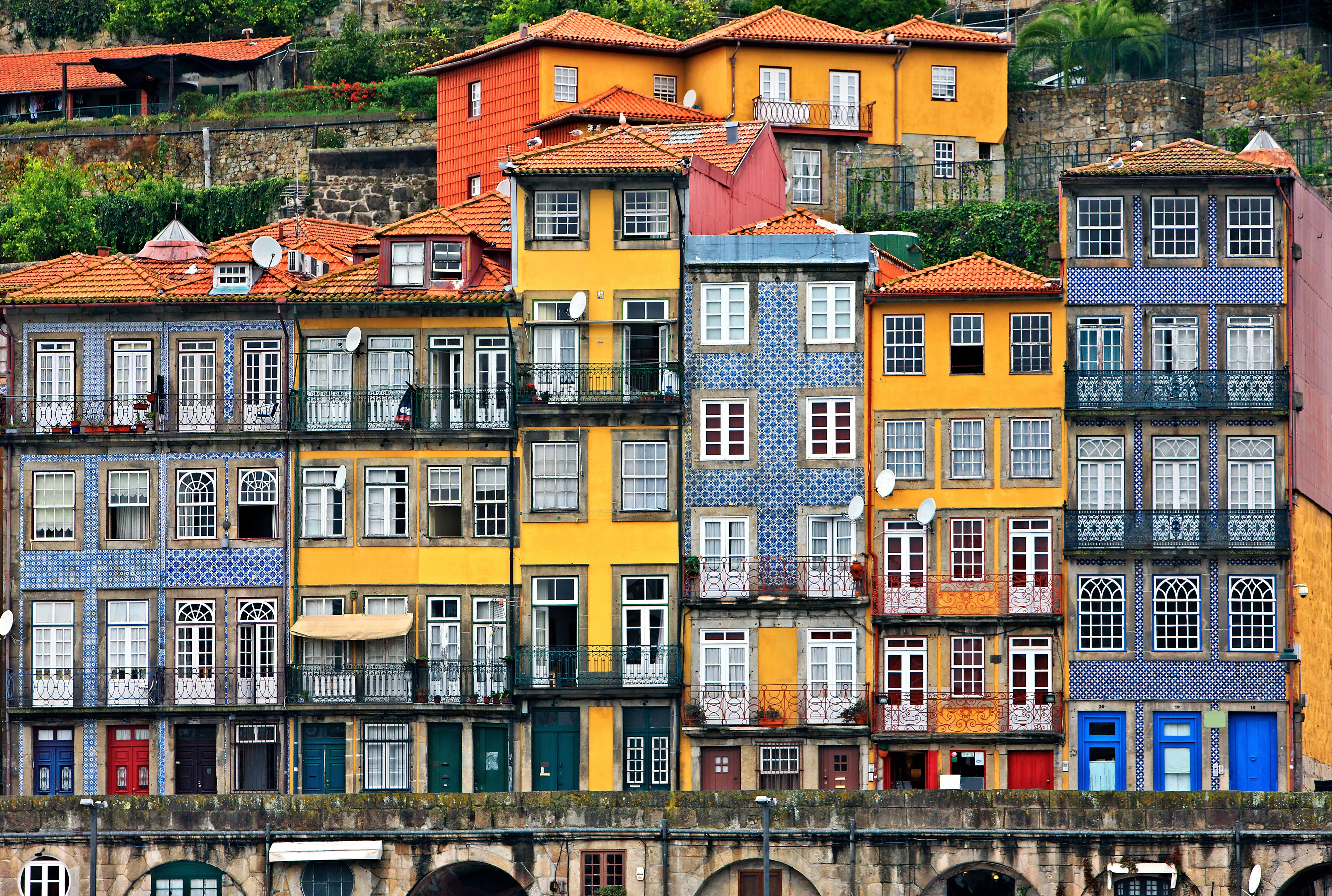
1Ribeira district
A historic district filled with narrow, winding streets, colorful houses, and stunning views of the Douro River.

2Serralves Museum and Gardens
A contemporary art museum set within a beautiful park and gardens.

3Foz do Douro
A seaside neighborhood in Porto, known for its beaches and its upscale homes and restaurants.

4Douro River Boat Tour
A scenic boat tour along the Douro River, offering views of the city's historic architecture and the region's beautiful vineyards.
Local Food and Drinks (12)

Francesinha
A popular sandwich in Porto, Portugal. It's made with bread, wet-cured ham, linguiça, fresh sausage, steak or roast meat, and covered with melted cheese and a hot thick tomato and beer sauce.

Port Wine
A type of sweet fortified wine which is exclusively produced in the Douro Valley in the northern provinces of Portugal. It is typically a dessert wine, but also comes in dry, semi-dry, and white varieties.

Bacalhau à Brás
A traditional Portuguese dish made from shredded cod, potatoes, and onions, mixed with scrambled eggs. It's a common dish in Porto and a must-try for tourists.

Pastel de Nata
A famous Portuguese egg tart pastry, originally from Lisbon, but loved and enjoyed all over Portugal including Porto.

Tripas à Moda do Porto
A traditional dish from Porto, made with various types of meat, offal, and white beans. The dish is closely associated with the history of the city, hence its inhabitants being known as 'tripeiros'.

Caldo Verde
A popular soup in Portuguese cuisine made of potatoes, collard greens, olive oil, and salt. Additionally, some recipes may add garlic and onion.

Polvo à Lagareiro
A traditional Portuguese dish typically made with octopus, potatoes, and lots of olive oil. It's a common dish in Porto and a must-try for seafood lovers.

Sardinhas Assadas
Grilled sardines are a staple of Portuguese cuisine, particularly in the coastal city of Porto. They are typically served with a side of boiled potatoes and salad.

Vinho Verde
A type of young wine, which can be red, white or rosé, and is particularly popular in the northern regions of Portugal, including Porto.

Bifanas
A traditional Portuguese sandwich made with marinated pork cutlets, served in a bread roll. It's a popular snack in Porto.

Arroz de Pato
A traditional Portuguese dish made with duck, rice, and various seasonings. It's a common dish in Porto and a must-try for tourists.

Rabanadas
A traditional Portuguese dessert similar to French toast, typically enjoyed during Christmas time but available year-round in Porto.
Best time to visit
The best time to visit Porto, Portugal is during the spring months of April to June and the fall months of September and October. During these periods, the weather is pleasant, and the city is less crowded. The temperatures range from 15°C to 25°C, making it ideal for sightseeing and exploring the city's rich history, culture, and cuisine. Additionally, the Douro Valley, famous for its wine production, is especially beautiful during these seasons.
How to get around
Walk
Porto is a compact city and many of the attractions are within walking distance of each other. This is a great way to see the city and take in the sights at your own pace.
Public Bus
The STCP (Sociedade de Transportes Colectivos do Porto) operates the city's extensive bus network. Buses are a convenient way to get around, especially for reaching areas outside the city center.
Tram
Porto has three heritage tram lines that are popular with tourists. They offer a charming way to travel around the city and see the sights.
Subway
The Porto Metro is a light rail network that covers much of the city and its suburbs. It's a fast and efficient way to get around, especially for longer distances.
Train
For trips outside of Porto, the train is a good option. Porto's main train stations, São Bento and Campanhã, offer connections to other cities in Portugal and beyond.
Taxi
Taxis are plentiful in Porto and can be hailed on the street, booked by phone, or picked up at taxi ranks. They offer a convenient, though more expensive, way to get around.
Ridesharing
Uber and Bolt are available in Porto. These services offer a convenient and often cheaper alternative to taxis. You can book a ride using the respective apps on your smartphone.
Bicycle
Porto has a growing network of bike lanes and several companies offer bike rentals. Cycling is a fun and eco-friendly way to explore the city.
River Cruise
The Douro River is a major feature of Porto and river cruises are a popular way to see the city. These cruises offer stunning views of Porto's riverside architecture and the surrounding countryside.
Rental Car
If you plan to explore the wider region around Porto, renting a car could be a good option. However, be aware that driving in Porto can be challenging due to the narrow streets and heavy traffic.
Funicular dos Guindais
This funicular railway provides a quick connection between the Ribeira district near the river and the higher level of the city. It's also a great way to enjoy panoramic views of Porto.
Helicopter Tour
For a unique perspective of Porto, consider a helicopter tour. These tours offer breathtaking aerial views of the city and its surroundings.
Important information
Currency€ EUR
Time zoneUTC 0
Driving sideRight
Emergency phone112
Drinking waterYes
Power sockets
Voltage230 V
Things to know about Porto, Portugal as a first time visitor
1
Porto is a safe city, but like any other tourist destination, it's always wise to keep an eye on your belongings.
2
The official language is Portuguese, but English is widely spoken in tourist areas.
3
The currency used in Porto is the Euro (€). Credit cards are widely accepted, but it's always good to have some cash on hand.
4
Tipping is not mandatory in Portugal, but it's customary to leave a 10-15% tip in restaurants if you're satisfied with the service.
5
Porto has a Mediterranean climate. Summers (June to September) are warm and dry with temperatures ranging from 70°F to 85°F (21°C to 29°C). Winters (December to February) are mild and rainy with temperatures ranging from 40°F to 60°F (4°C to 15°C).
6
Public transportation in Porto is reliable and affordable. The city has a metro system, buses, and trams. You can also use Uber or taxis.
7
Porto is a walkable city, but it's hilly. Comfortable shoes are a must.
8
Portugal uses the European two-pin plug (Type F), and the standard voltage is 230V.
9
Porto is in the Western European Time Zone (WET, GMT +0; WEST, GMT +1 in summer).
10
Tap water is safe to drink in Porto.
11
Porto is famous for its port wine. Visiting one of the city's many wine cellars is a must.
12
Traditional Portuguese food is hearty and flavorful. Try local dishes like Francesinha and Bacalhau à Brás.
13
Porto has a vibrant nightlife, with many bars and clubs open until the early hours of the morning.
14
Smoking is banned in all enclosed public spaces, including restaurants and bars.
15
Pharmacies in Porto are well-stocked and pharmacists often speak English. Look for a green cross sign.
16
In case of emergency, dial 112. This number will connect you to police, fire, and medical services.
17
Public restrooms are not as common as in other European cities. Cafes and restaurants usually have facilities for customers.
18
Supermarkets are closed on Sundays, so plan your grocery shopping accordingly.
19
Porto has a dress code that leans towards the conservative side, especially in religious sites. It's best to avoid revealing clothing.
20
If you're planning to visit several museums or attractions, consider getting a Porto Card for unlimited public transport and discounts at various sites.
Basic Portuguese to know as a first time visitor
English phrase | Native phrase | Pronunciation | When to use it |
|---|---|---|---|
Hello | Olá | Ola | Greeting someone |
Goodbye | Adeus | Adoosh | Saying goodbye |
Please | Por favor | Pour fah-vohr | Making a request |
Thank you | Obrigado | Obri-gah-doh | Expressing gratitude |
Yes | Sim | Seem | Agreeing or affirming |
No | Não | Nown | Disagreeing or negating |
Excuse me | Desculpe | Desh-kool-peh | Getting attention or apologizing |
I'm sorry | Lamento | Lah-men-toh | Apologizing |
Do you speak English? | Fala inglês? | Fah-lah een-glesh? | Asking if someone speaks English |
I don't understand | Não entendo | Nown en-ten-doh | Expressing difficulty in understanding |
Where is the bathroom? | Onde é o banheiro? | Onde eh o ban-yay-roh? | Asking for directions |
How much does it cost? | Quanto custa? | Kwan-toh koos-tah? | Asking the price of something |
I would like... | Eu gostaria... | Eh-oo goh-stah-ree-ah... | Making a request or order |
Can I have the bill, please? | Posso ter a conta, por favor? | Pos-soh tehr a kon-tah, pour fah-vohr? | Asking for the bill in a restaurant |
Help! | Socorro! | So-ko-roh! | In case of emergency |
Call the police! | Chame a polícia! | Shah-meh a po-lee-see-ah! | In case of emergency |
I need a doctor | Preciso de um médico | Preh-see-zoh deh oon meh-dee-koo | In case of medical emergency |
Cheers! | Saúde! | Sah-ood! | Making a toast |
Good morning | Bom dia | Bom dee-ah | Morning greeting |
Good night | Boa noite | Boa noyt | Evening or night greeting |
Packing List
Clothing
Underwear
Socks
T-shirts
Pants/Shorts
Comfortable walking shoes
Light jacket or sweater
Pajamas
Swimsuit
Sunglasses
Hat
Toiletries
Toothbrush
Toothpaste
Floss
Deodorant
Shampoo and conditioner
Body wash or soap
Razor
Shaving cream
Sunscreen
Lip balm
Personal hygiene items
Prescription medications
First-aid kit
Travel documents and essentials
Passport/ID
Airline tickets
Hotel reservation confirmation
Travel insurance documents
Emergency contacts and addresses
Credit and debit cards
Cash and coins
Guidebook
Electronics and gadgets
Smartphone
Charger for smartphone
Headphones
Portable power bank
Camera
Memory card for camera
Adapter plug
Miscellaneous items
Travel pillow
Earplugs
Eye mask
Snacks
Water bottle
Books or e-books
Travel-size laundry detergent
Ziplock bags
Tissues
Umbrella
Weather Conditions
When visiting Porto, Portugal, it's important to be aware of the city's weather patterns to make the most of your trip. Porto experiences a Mediterranean climate, with warm, dry summers and mild, rainy winters. If you're planning to visit during the summer months (June to September), expect temperatures to range from 60°F to 80°F (15°C to 27°C). This is the perfect time for outdoor activities like wine tours, beach visits, and exploring the city's historic sites. However, it's advisable to pack light clothing, sunscreen, and a hat to protect yourself from the sun. In contrast, the winter months (December to February) are cooler and wetter, with temperatures ranging from 40°F to 60°F (5°C to 15°C). If you're visiting during this period, be sure to pack warm clothing and waterproof shoes, as you may encounter rain. Despite the rain, winter can be a great time to visit Porto's indoor attractions like its famous wine cellars and museums. The shoulder seasons - spring (March to May) and autumn (October and November) - offer mild and pleasant weather, with temperatures typically ranging from 50°F to 70°F (10°C to 21°C). These periods are ideal for sightseeing and enjoying Porto's vibrant café culture. Regardless of when you visit, it's always a good idea to check the local weather forecast before your trip to ensure you're adequately prepared. Remember, the weather can sometimes be unpredictable, so packing a light jacket or umbrella can come in handy. Enjoy your visit to Porto!
| Month | Hi / Lo (°C) | Weather Overview |
|---|---|---|
January | 14° / 5° | January is the coldest month in Porto, with occasional rain, so pack warm and waterproof clothing. |
February | 15° / 6° | February is slightly warmer but still chilly, with a chance of rain, so warm and waterproof clothing is recommended. |
March | 17° / 8° | March sees the beginning of spring, with temperatures rising slightly and rain decreasing, but still pack for cooler weather. |
April | 18° / 9° | April is a pleasant month with moderate temperatures and less rain, perfect for outdoor activities. |
May | 21° / 12° | May brings warmer temperatures and more sunshine, making it a great time for beach visits and city exploration. |
June | 24° / 15° | June marks the start of summer with warm temperatures, less rain, and long sunny days, ideal for sightseeing and beach activities. |
July | 26° / 16° | July is one of the hottest months in Porto, with plenty of sunshine and minimal rain, perfect for enjoying the beaches and outdoor dining. |
August | 26° / 16° | August is equally hot and sunny as July, with long days and warm nights, making it ideal for nightlife and beach activities. |
September | 24° / 14° | September sees slightly cooler temperatures but still plenty of sunshine, making it a great time for sightseeing and wine tasting. |
October | 21° / 12° | October brings cooler temperatures and increased rain, but it's still warm enough for outdoor activities, just pack a light raincoat. |
November | 18° / 9° | November sees a further drop in temperatures and increased rain, so pack warm and waterproof clothing. |
December | 15° / 6° | December is chilly with a chance of rain, but the festive atmosphere in Porto makes it a magical time to visit. |
Did you know?
Places near by Porto, Portugal
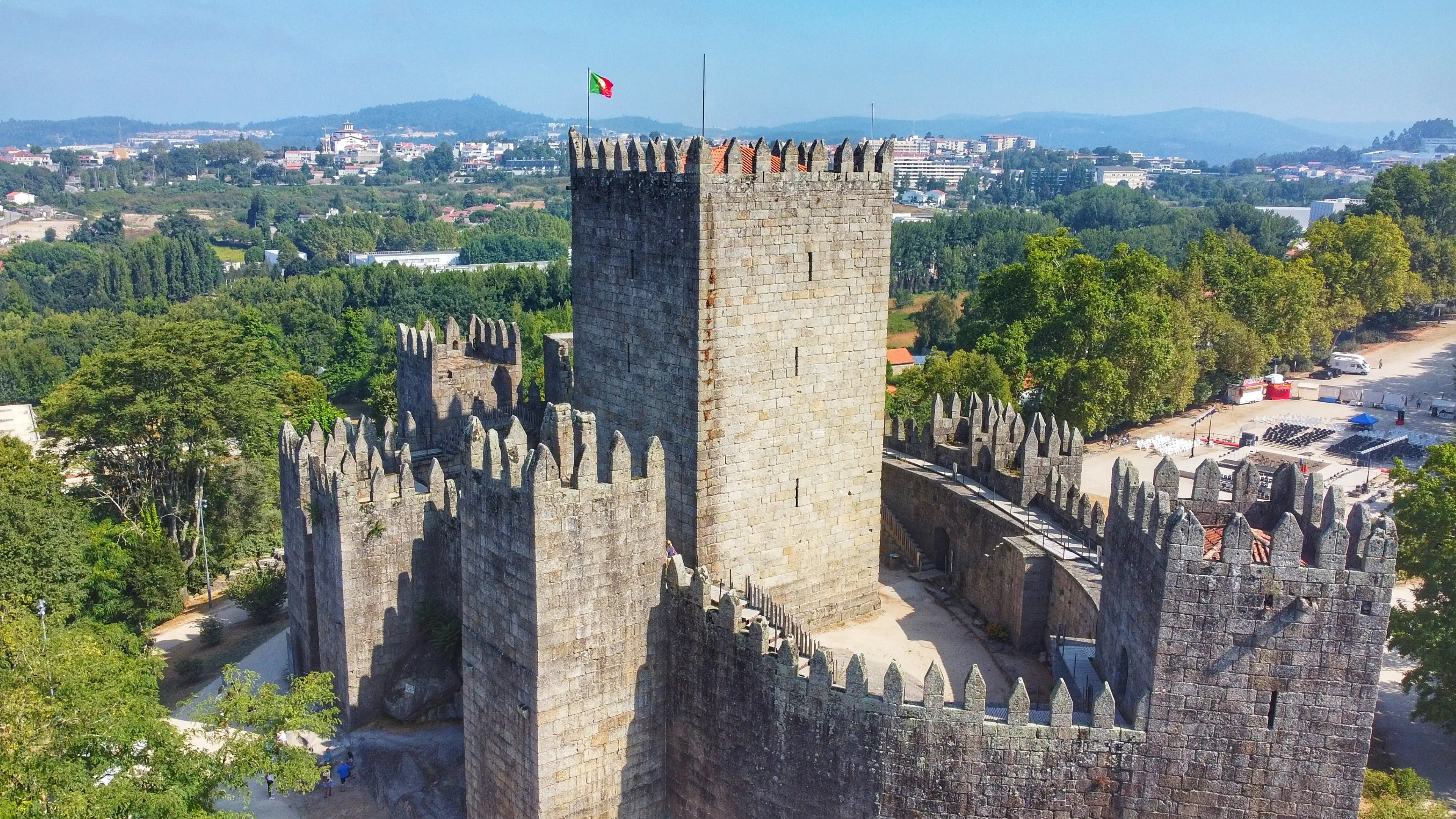
Guimarães
Known as the birthplace of Portugal, Guimarães is a charming city with a rich history and beautiful medieval architecture.
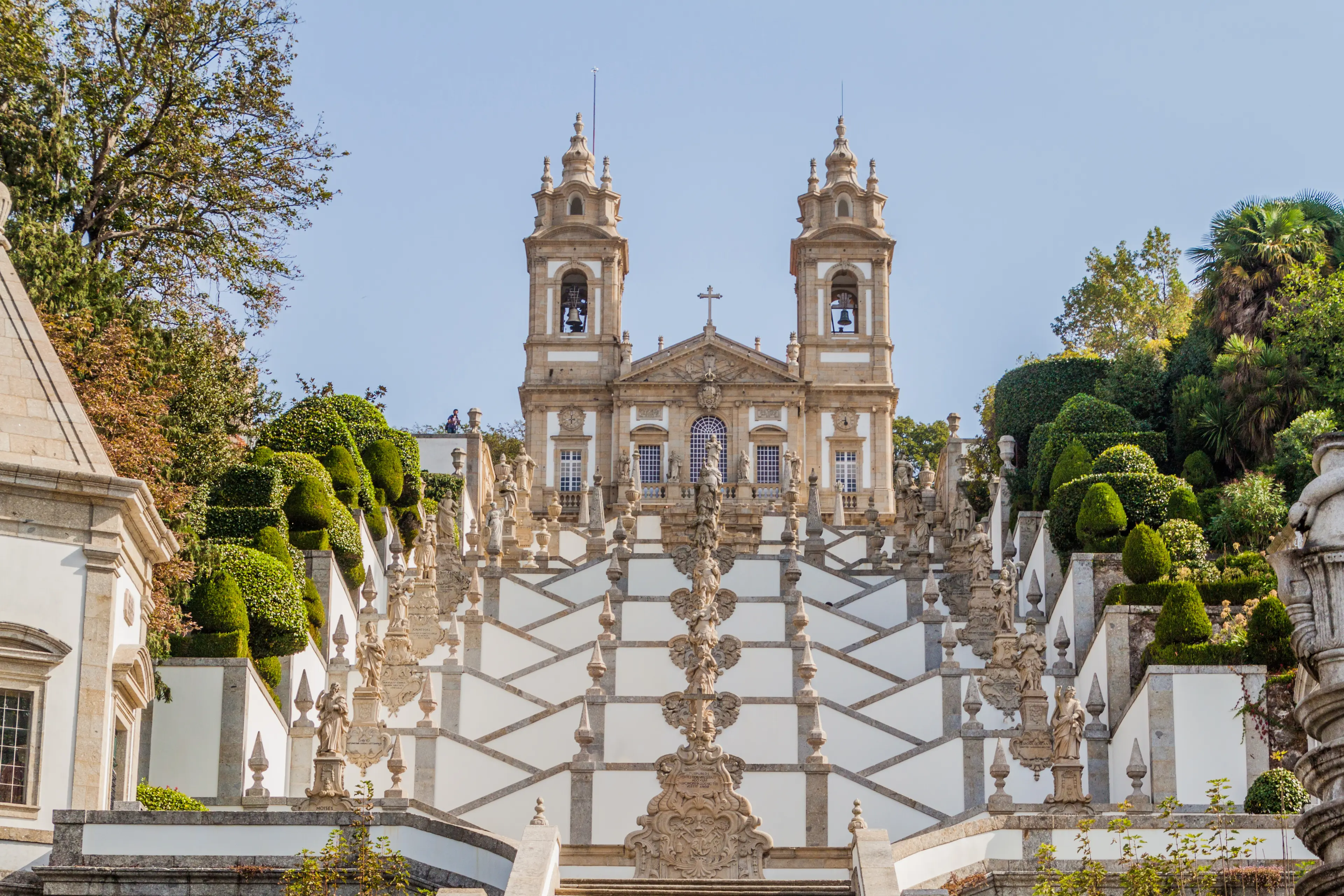
Braga
One of the oldest cities in Portugal, Braga is known for its historic buildings, particularly its religious architecture.
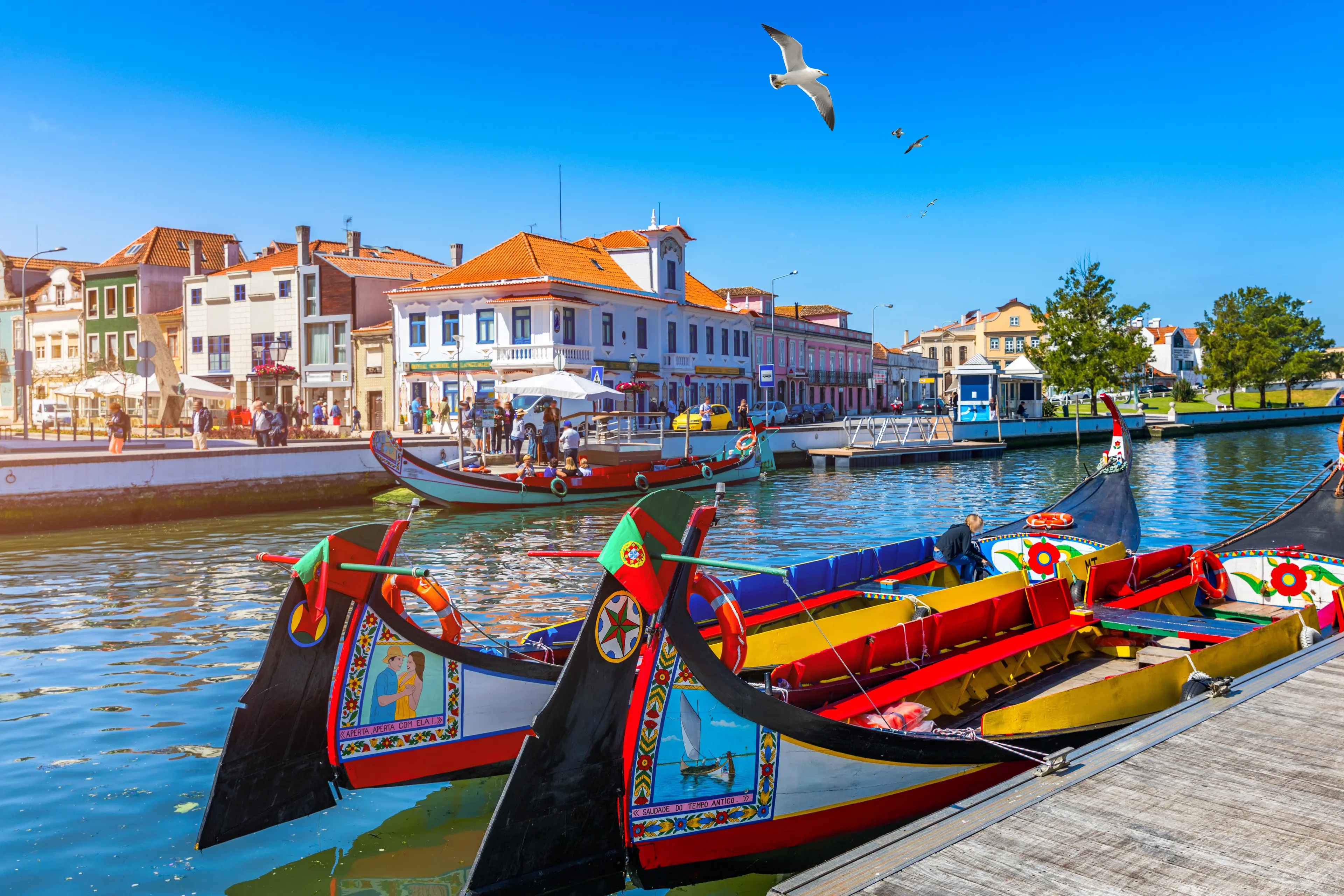
Aveiro
Often called the 'Venice of Portugal', Aveiro is known for its canals, colorful boats, and Art Nouveau architecture.
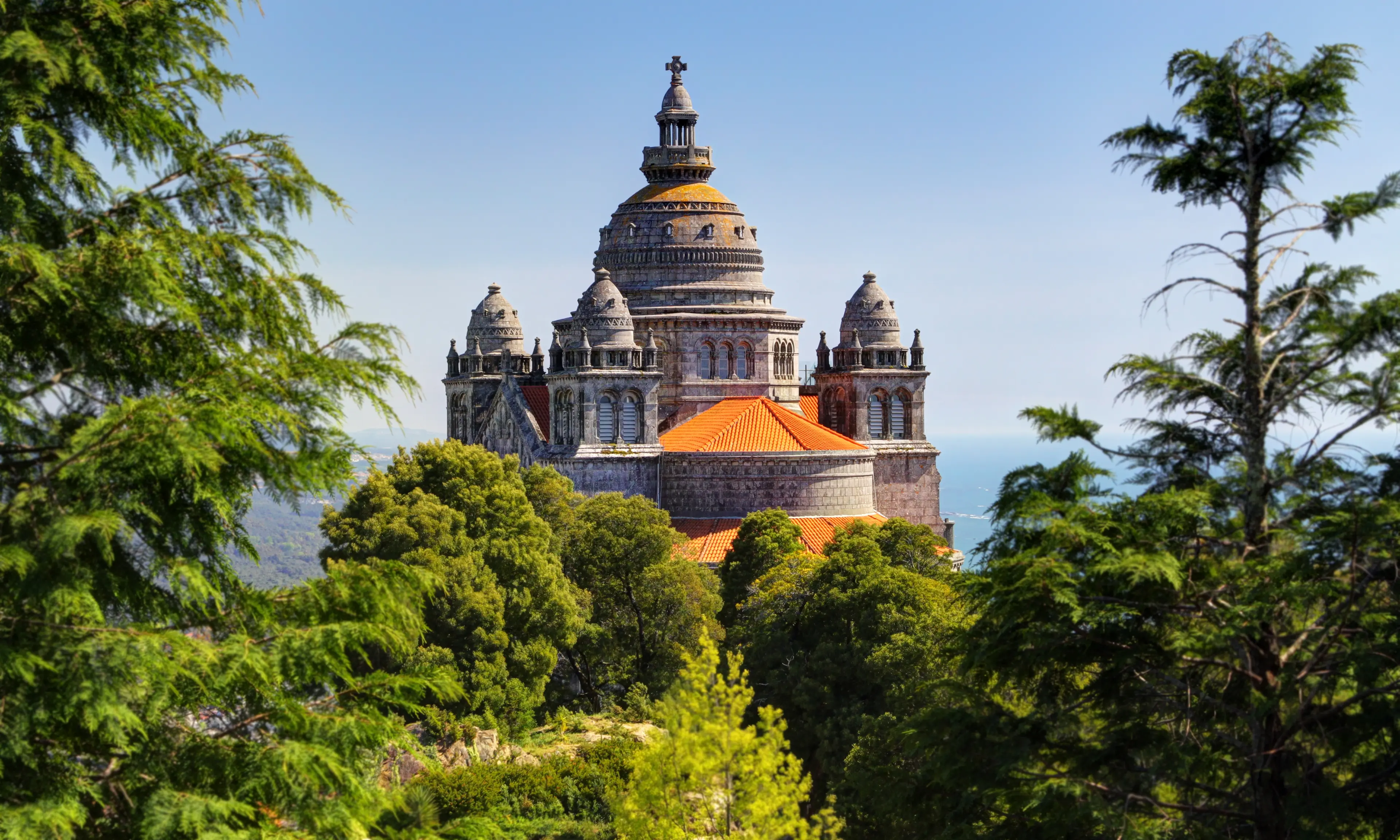
Viana do Castelo
A picturesque city known for its stunning landscapes, beautiful architecture, and rich cultural heritage.
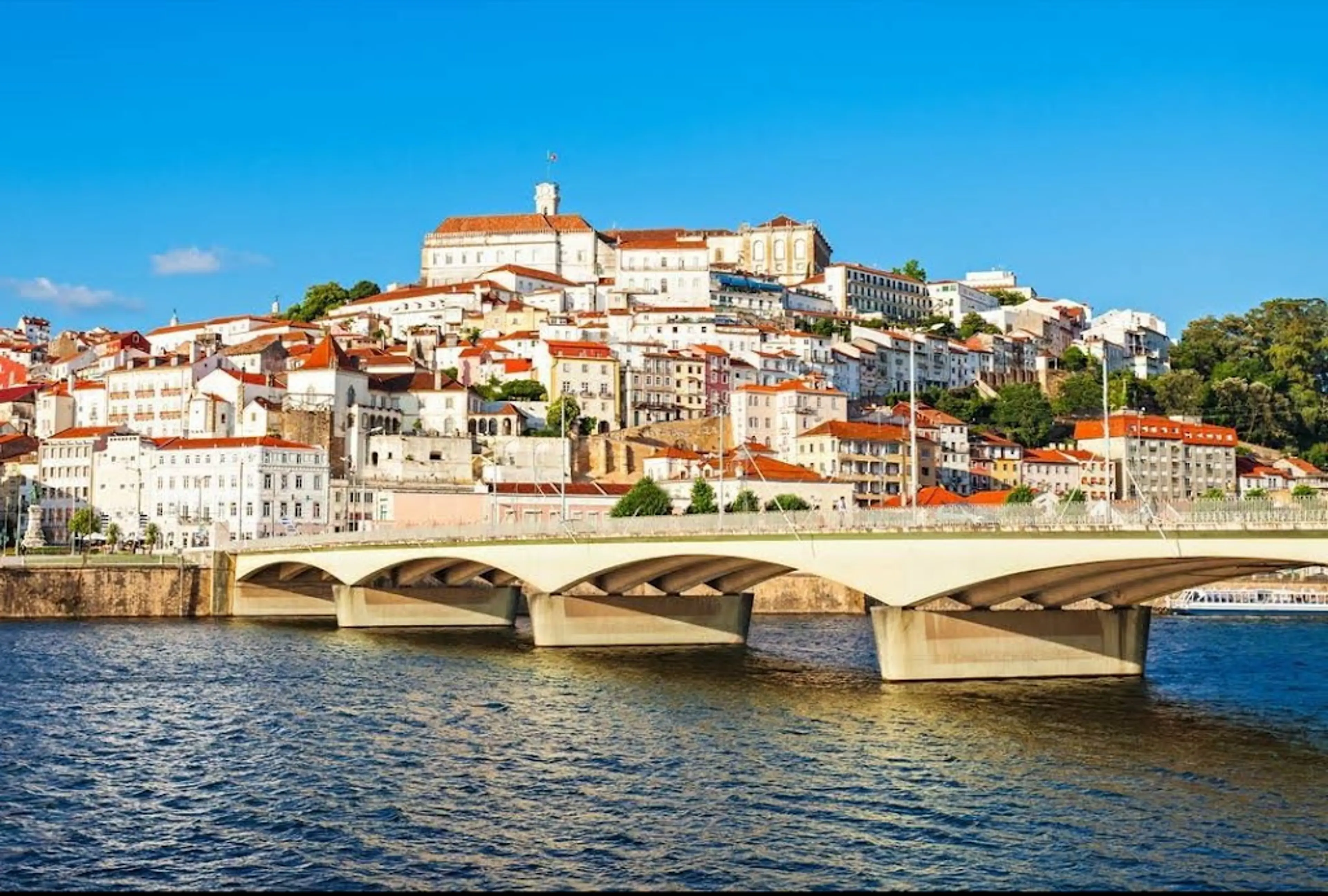
Coimbra
A city steeped in history and home to one of the oldest universities in the world.
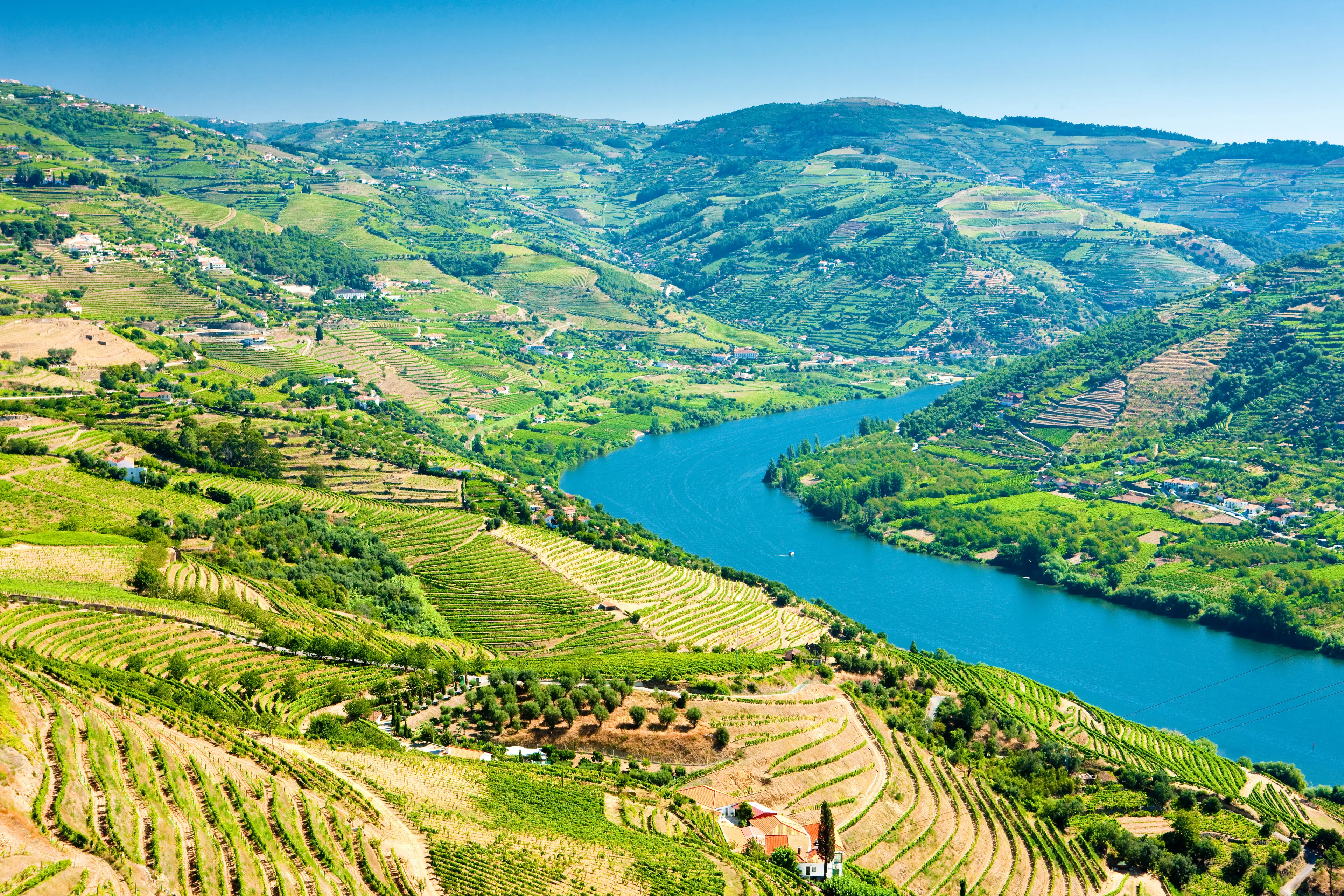
Douro Valley
A UNESCO World Heritage site, the Douro Valley is famous for its stunning landscapes and wine production.
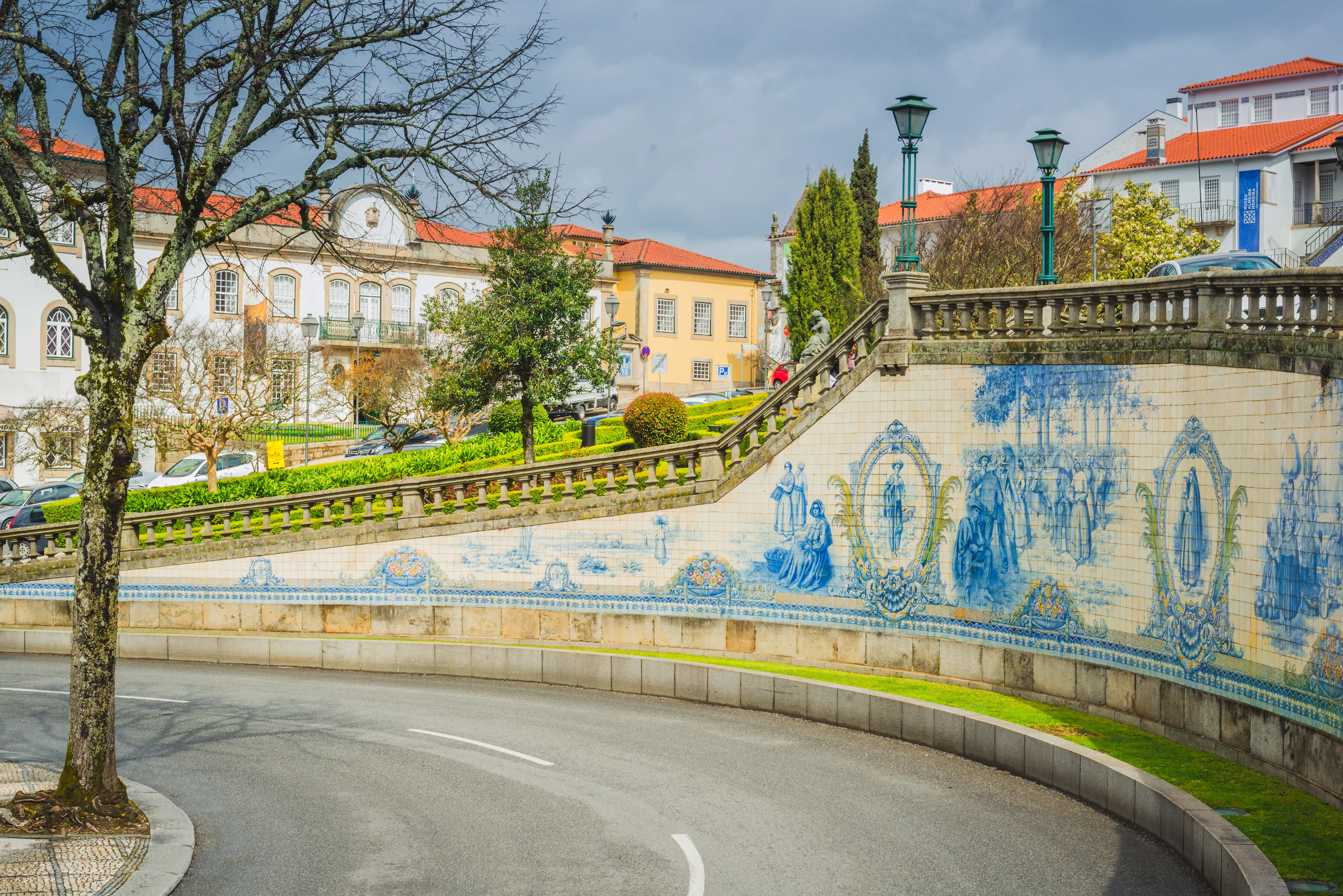
Viseu
A city with a rich history, known for its beautiful cathedral and well-preserved old town.
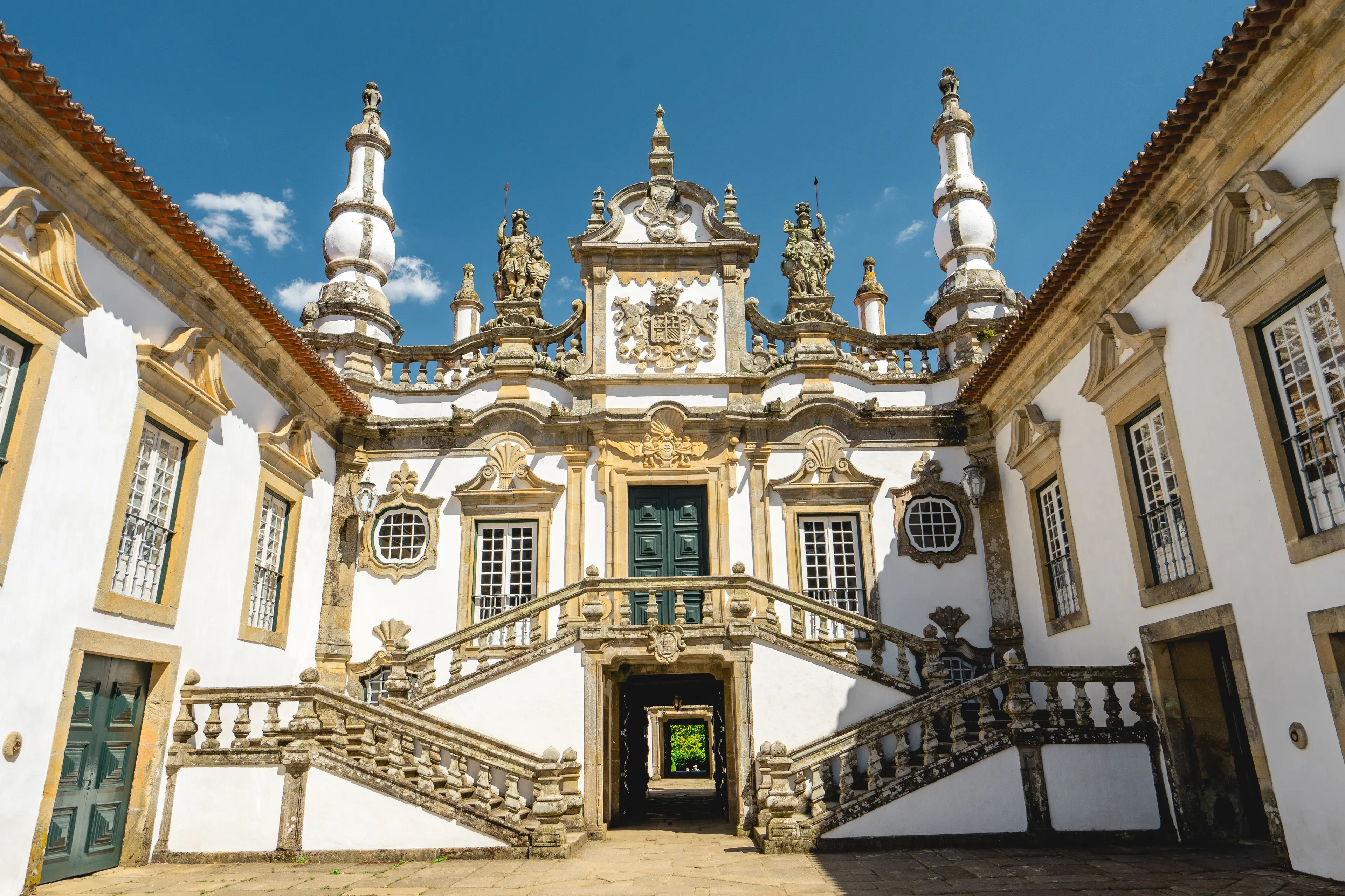
Vila Real
Known for its baroque Mateus Palace, Vila Real is a charming city surrounded by natural beauty.
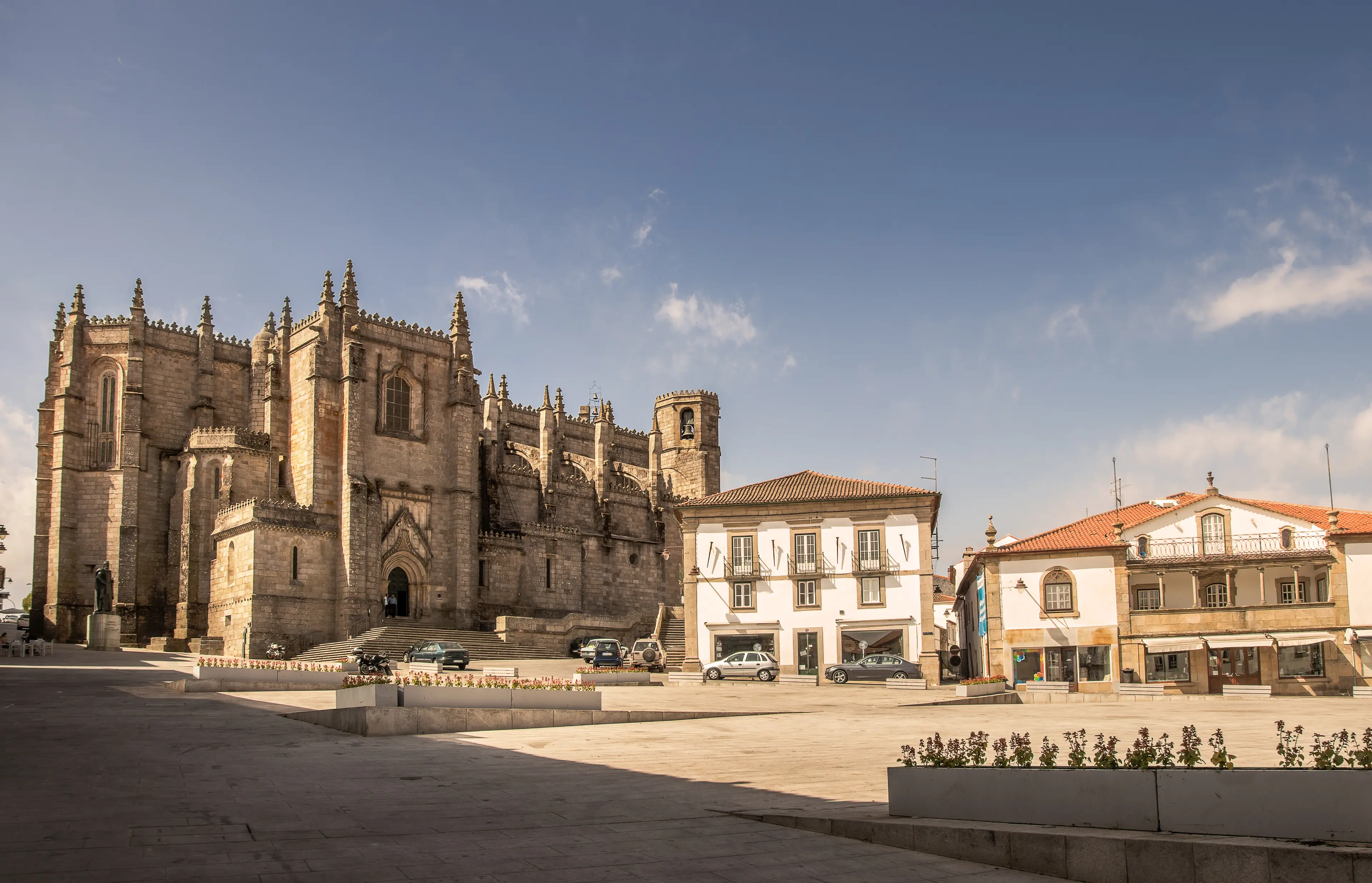
Guarda
The highest city in Portugal, Guarda is known for its medieval old town and stunning views.
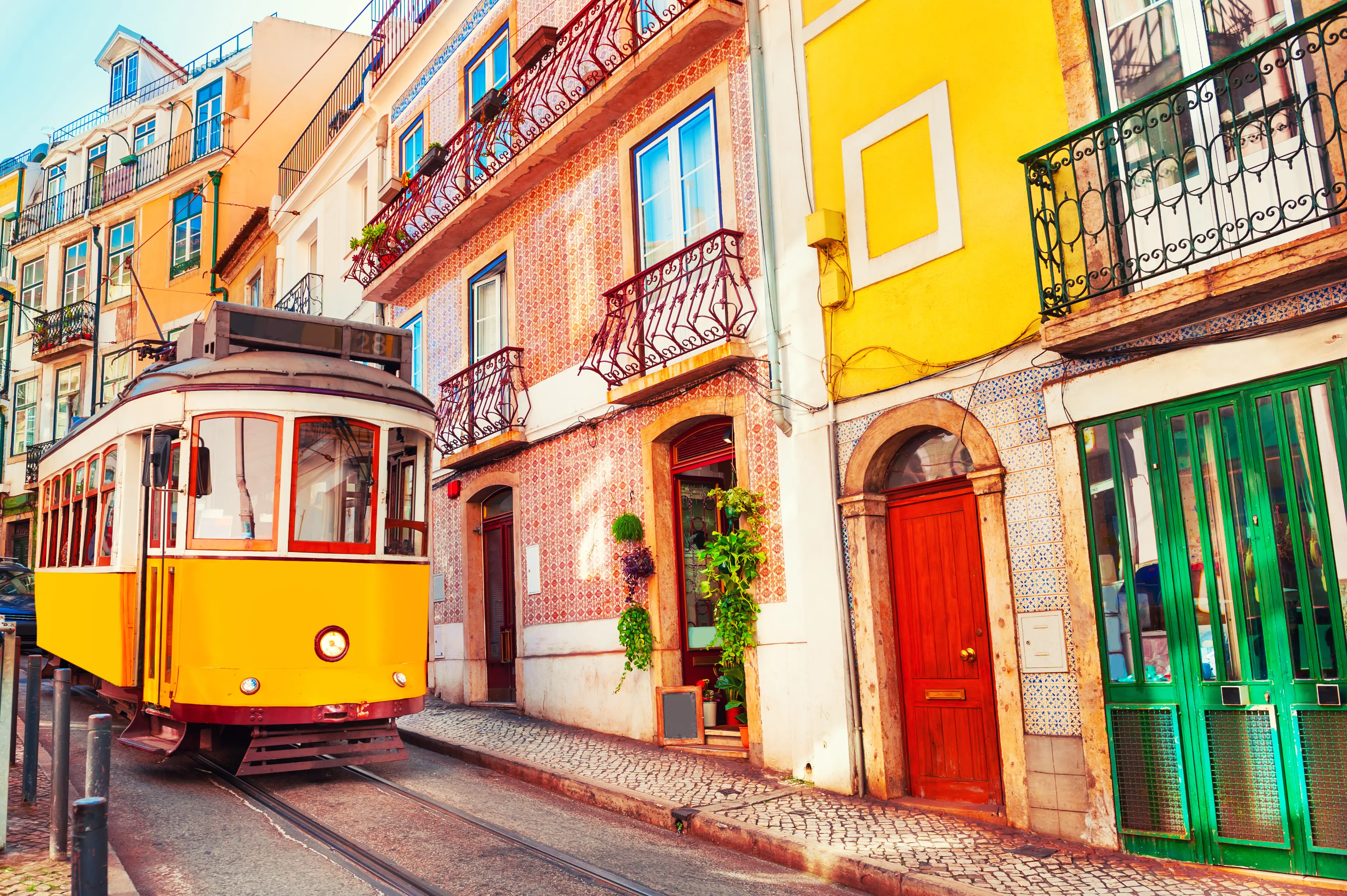
Lisbon
The capital of Portugal, Lisbon is known for its historic neighborhoods, stunning views, and vibrant culture.
